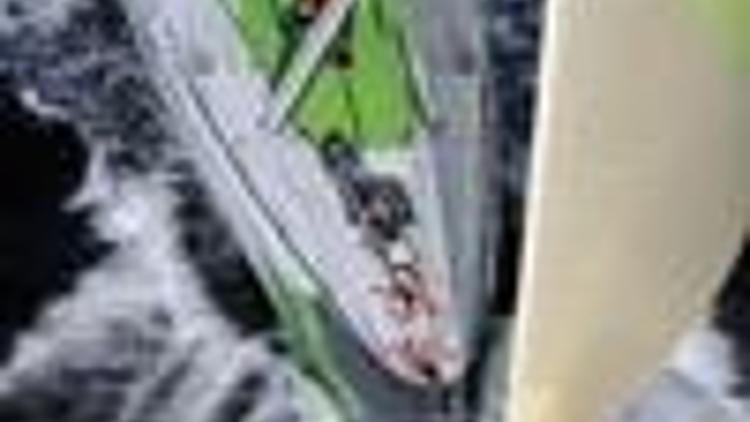One leg down, but 30,000 miles to go in round the world race
Güncelleme Tarihi:

CAPE TOWN - Eight yachts from seven nations are off to the Volvo Yacht Race, one of the world's most extreme and dangerous sporting events. Finishing the thrilling 37,000-mile race around the world is worthy of climbing to Everest for sailors.
They have been churned by monster waves and gale-force winds, humbled by relentless heat and sleep deprivation -- and this is only the beginning for sailors in a perilous yacht race around the world.�
With nerves of steel and sailing experience wrought from a lifetime at sea, eight crews set out a month ago on a 37,000 mile test in one of the world's most extreme and dangerous sporting events.
The prestigious Volvo Yacht Race around the world, launched as the Whitbread in 1973, has been called the "Everest of sailing," and while teams made it safely past the first leg to Cape Town, the summit is still far away.
The eight yachts representing seven nations set out from Alicante, Spain for the second longest, and one of the toughest legs of 6,500 nautical miles to Cape Town, where they were ushered in over three days.
Navigator Simon Fisher of Telefonica Blue, which arrived fifth, is partially recovered after his first sleep of more than two hours in 20 days.
"This first leg you get a bit of everything because you cover so much latitude. You start off in autumn and arrive in spring and in between you get everything," he told AFP.
Everything varies from the Doldrums, a low-pressure area near the equator where wind often disappears entirely, to heavy Atlantic squalls. Sailors work in four-hour shifts, sustaining bruises, cracked vertebrae, or even facing death as they are washed overboard.
Adventurous race
The first Whitbread saw three men washed overboard. Fisher's boat in the last race lost a man, while a yacht in the last Volvo race was sunk entirely, the crew thankfully rescued.
"That's the thing you fear most, as an individual, going over the side. The problem is the boats go so fast, they just disappear over the horizon and it's quite hard to get back," said Fisher.
The navigator has one of the most crucial roles, working with weather forecasts, satellite positioning systems and an array of technology to decide on the best course.
"In the '70s the navigator's biggest job was just to find out where you were, you were just there with your sextant and the stars."
But for Fisher, who has been on boats since before he could walk, the race is "the sort of event a lot of people fall in love with and are very passionate about. It is more than a race -- it's an adventure."
Nick Bubb, boat captain on Team Russia's yacht, says it is "addictive," requiring the mental strength of a warrior.
"You have to be like a warrior, you have to keep going and keep going. You can't just stop and say 'I am going to bed now, I have had enough.' There is no game over."
Discomforts onboard
This leads to amazing camaraderie however, which makes up for the discomforts onboard, he says.
"You're always wet, either because storm water is getting in ... or you're wet because you're sweating ... you're never the right temperature," Bubb told AFP. "Then there is getting washed down the deck. You are going 30 miles an hour one way, a wave hits you and you just get smacked back."
While teams enjoy a bit of sleep, and a break from freeze-dried food, the vessel's shore teams scramble to make repairs and preparations for the next leg to Kochi, India -- a new stretch that provides unknowns that could change the game completely.
In the last five editions of the Volvo Ocean Race, the winner of the first stage went on to win the event, which is decided on points rather than fastest overall time.
However race favorite and first leg victor Ericsson 4, which became the fastest mono-hull yacht ever when it broke the world 24-hour distance record last week, may have a battle on its hands if the route throws unforeseen curveballs into a very tight race.
After India, teams head through ports including Singapore, Rio de Janeiro and Galway onto Saint Petersburg in Russia where they are expected to arrive in June 2009.

